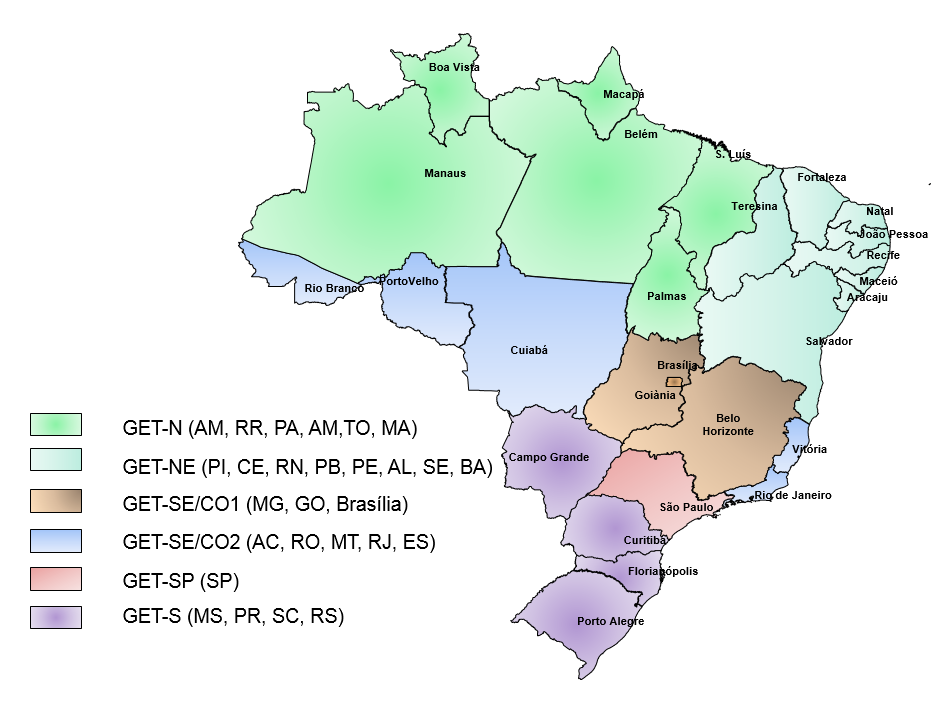The EPE is responsible for the studies necessary for the development of plans for the expansion of power transmission and the development of technical, economic and environmental feasibility studies for transmission projects.
The scope of these studies covers the load service, the definition of connection systems and the integration of new plants, as well as expansions of regional and international grid connections, facilitating competition in the generation and commercialization of electricity.
EPE's performance in the studies related to the expansion of the transmission system is primarily characterized by providing transparency to its activities, ensuring the participation of interested agents in the studies developed, seeking a coherent, robust, proactive transmission plan that responds in a way to the interests of the country and agents.
In this sense, transmission expansion planning studies are conducted on a regional basis by the Transmission Studies Groups (GET) led by EPE and rely on the collaboration of transmission and distribution companies.

The transmission studies are developed from the identification of the need to meet the growth of the market, the connection of new plants, the connection of a new consumer or the need to expand regional interconnections. These studies, called 'Technical-Economic and Socio-Environmental Feasibility Studies - R1 Reports', indicate, based on a comparison of alternatives involving analysis of power flow, stability, short circuit and economic, the best alternative for a given expansion, meeting the criteria and planning procedures. R1 reports also present a preliminary analysis of the socio-environmental feasibility of the corridors and provide subsidies for eventual redefinition of the most promising alternative of transmission. The socio-environmental analysis in this planning stage also allows visualizing possible complicators for the implementation of the projects, which will be reflected in the cost and in the term of its implementation.
Transmission expansion studies culminate in the elaboration of the document Transmission Expansion Program / Long-Term Expansion Plan (PET / PELP in Portuguese), published semiannually in the months of February and August of each year. The Transmission Expansion Program has a determinative character covering a six-year horizon and includes transmission facilities that have not yet been tendered or authorized, which are recommended for start operating in the next six years. Its main purpose is to subsidize the Ministry of Mines and Energy in the prioritization of transmission facilities that will integrate the lots to be offered in future transmission auctions. Besides that, the Transmission Expansion Program is an important signal for sector agents and suppliers of the investments to be made in the coming years. The Long Term Expansion Plan is indicative and includes the recommended facilities to start operations from the seventh year.
In addition to R1, the studies previous to the bidding process of grant by ANEEL comprise three more reports, known as R2, R3 and R4, whose elaboration, usually requested by the MME to the transmission concessionaires, is accompanied by the EPE, being, in specific cases R2 , coordinated or carried out by the EPE itself. EPE has also accompanies R3 Reports in which it is defined the route guideline of the lines and the location of associated substations that subsidize the auction of the transmission projects. The definition of the guideline is based on the detailing of the socioenvironmental analyzes of R1 and on technical engineering criteria. In specific cases of R3, referring to strategic enterprises, the EPE coordinates its elaboration, at the discretion of the MME.
